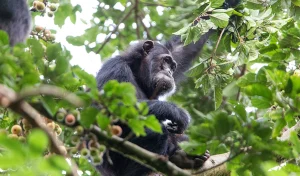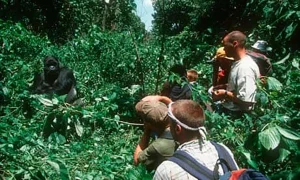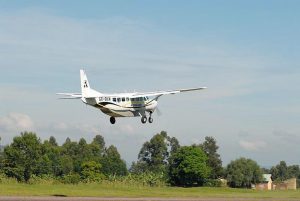Tea Tours in Rwanda
Tea Tours in Rwanda offer a fascinating glimpse into the country’s thriving tea industry, which is one of its largest agricultural exports. Rwanda’s cool climate, fertile volcanic soils, and rolling hills provide the perfect conditions for growing high-quality tea. Visitors can explore the picturesque tea plantations, learn about tea cultivation, processing, and tasting, and enjoy the beautiful landscapes. Here’s what you can expect from a tea tour in Rwanda:
1. Top Tea Growing Regions
Rwanda’s tea plantations are spread across several regions, each offering a unique experience:
a) Nyungwe Tea Estates
- Located near Nyungwe National Park, these tea estates are among the most scenic in Rwanda. The tea fields are perched on the rolling hills, offering stunning views of the national park and Lake Kivu.
- Nyungwe Tea Tours often combine tea plantation visits with a trek through Nyungwe Forest, known for its chimpanzees and canopy walks. Visitors can explore the entire tea production process, from planting to picking and processing.
b) Gisovu and Gisakura Tea Estates
- Also located near Nyungwe Forest, Gisovu and Gisakura tea estates are renowned for producing some of Rwanda’s highest-quality teas, even supplied to prestigious tea auctions around the world.
- Tours here offer in-depth insights into tea processing, along with opportunities to sample freshly brewed Rwandan tea while enjoying breathtaking landscapes.
c) Sorwathe Tea Estate
- Sorwathe Tea Estate is located in the Northern Province, near the town of Kinihira, and is one of Rwanda’s most prominent tea producers. It is also known for its strong commitment to sustainability and ethical practices.
- Visitors can tour the factory to learn about tea processing techniques like orthodox and CTC (Crush, Tear, Curl) production. Afterward, guests can enjoy tea tastings, where they learn about the flavor profiles of different tea varieties grown on the estate.
d) Mulindi Tea Estate
- Situated in the northern region, near the Ugandan border, Mulindi is one of Rwanda’s oldest tea plantations. It offers tea tours where visitors can walk through the lush tea fields and visit the processing facilities.
- This area is also close to the Twin Lakes of Burera and Ruhondo, providing stunning scenery as a backdrop to your tea-tasting experience.
2. What to Expect on a Tea Tour
A tea tour in Rwanda typically includes the following:
- Guided Walks Through Tea Plantations: Learn about tea cultivation, from planting seedlings to the manual harvesting of the tea leaves. The sight of workers in the fields picking tea is a beautiful and peaceful experience.
- Factory Visits: See the entire tea production process up close. At the factory, the freshly plucked tea leaves are sorted, dried, processed, and packaged. The guides will explain how different processing methods (like CTC vs. orthodox) affect the final tea product.
- Tea Tasting Sessions: At the end of most tours, visitors get to sample various teas produced at the estate, learning about the subtle differences in flavor and quality. You’ll learn how to properly brew and taste tea, paying attention to aroma, taste, and color.
- Cultural Insights: Many tea estates also include visits to nearby communities or cooperatives where you can learn about the local culture and the impact of the tea industry on the rural economy. In some cases, you might meet the farmers and workers who are involved in the day-to-day operations of the plantation.
3. Combining Tea Tours with Other Activities
- Nyungwe Forest National Park: Many tea plantations, like Gisakura and Gisovu, are located near Nyungwe Forest, one of the oldest rainforests in Africa. Combining a tea tour with activities like chimpanzee tracking, bird watching, or the famous canopy walk offers a perfect mix of nature and culture.
- Lake Kivu: The tea estates near Lake Kivu offer opportunities to explore the scenic shores of the lake. Visitors can enjoy boat rides or relax by the beach after a day exploring the tea plantations.
- Volcanoes National Park: Tea estates in northern Rwanda, such as Mulindi, are close to Volcanoes National Park, home to the famous mountain gorillas. A tea tour can be combined with gorilla trekking for a complete Rwandan experience.
4. Sustainability and Ethical Practices
Rwanda’s tea industry places a strong emphasis on sustainability and fair trade practices. Many tea estates, such as Sorwathe, are involved in sustainable farming techniques, social initiatives, and ethical labor practices. Visitors will often hear about these efforts during their tours, providing insight into how the industry supports local communities and the environment.
5. Best Time to Visit
Rwanda’s tea plantations are open year-round, but the dry seasons (June to September and December to February) are the best times to visit. The dry weather makes it easier to tour the plantations and enjoy the surrounding scenery. During the rainy seasons, the fields are lush and vibrant, though access to some areas may be more challenging.
Conclusion
A tea tour in Rwanda offers a serene and educational experience, allowing you to explore the country’s rich agricultural traditions while surrounded by breathtaking landscapes. Whether you’re a tea enthusiast or simply looking to immerse yourself in local culture, a visit to Rwanda’s tea estates provides a memorable addition to any trip, combining nature, culture, and sustainability. Tea Tours in Rwanda




